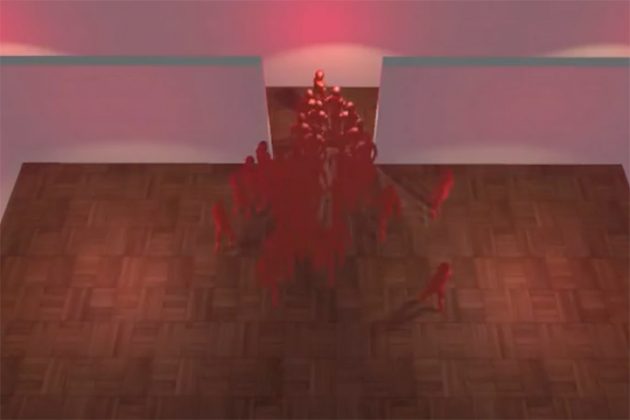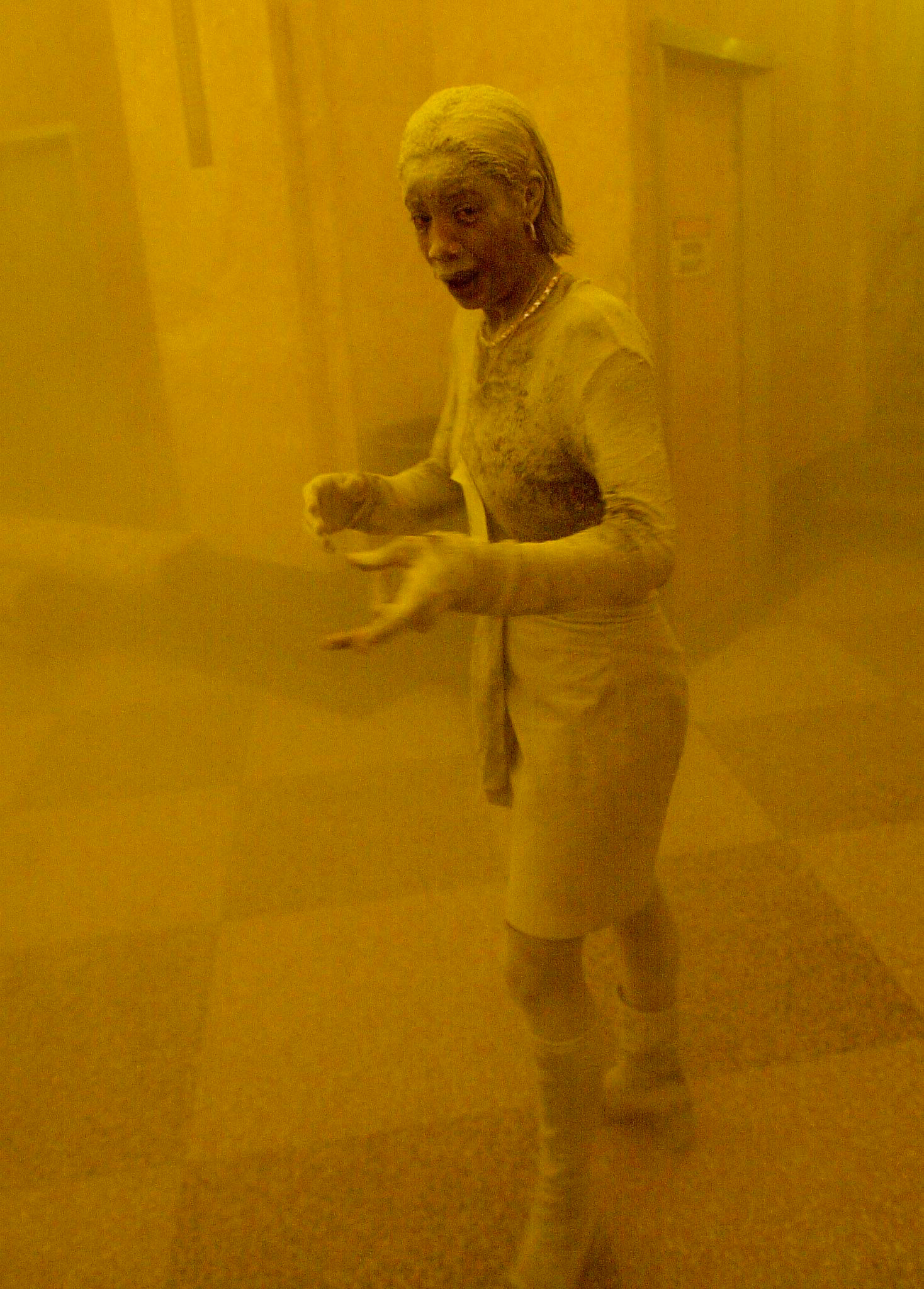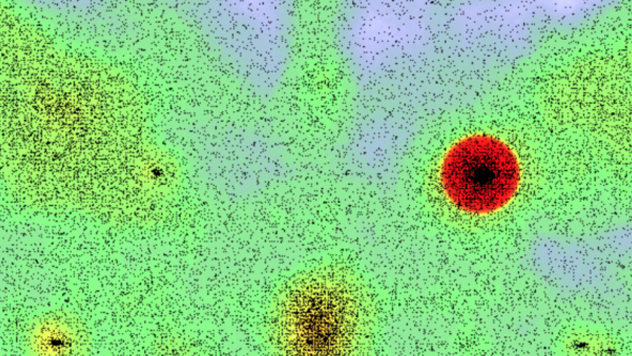Crowd Panic Modeled in Virtual Reality

Thirty-six people who participated in the experiment were given control of one game character each and the POV of the character. In the first experiment, they had to avoid each other in a narrow hallway. 95% of the test subjects walked along the right side of the hallway. This confirmed that results of the experiments in France and Switzerland, where 81% of test subjects also walked along the right side.
During the second experiment, participants had to find a way out of a model of a building during evacuation. It had four exits, but three of them were closed, and people did not know, which ones. Some of the tests subjects had an arrow pointing to the open exit light up on their screens. People knew that among them are those who know the right exit, but did not know who they were.
The experiment was performed at two stress levels: low and high. In both cases, people received scores which they could exchange for money after the end of the game. At low stress level they were fined for colliding with other people and awarded for exiting the floor in 50 seconds. At high stress level they were fined for collisions and had all scores burn if they exited the floor too late.
At low stress level people moved carefully, not to be fined for collision, and checked the exits at both sides of the main hallway. At high stress level they preferred to be fined for collisions, to exit faster and not lose all scores. Because of that they hurdled into crowds more often and got stuck in bottlenecks. It also got crowded in deadlocks, where people turned away from closed doors, or in places where they needed to make a decision before going further.
The experiments were performed by researchers from the Max Planck Institute for Human Development, Disney Research Zurich, ETH Zurich, and Rutgers University.












